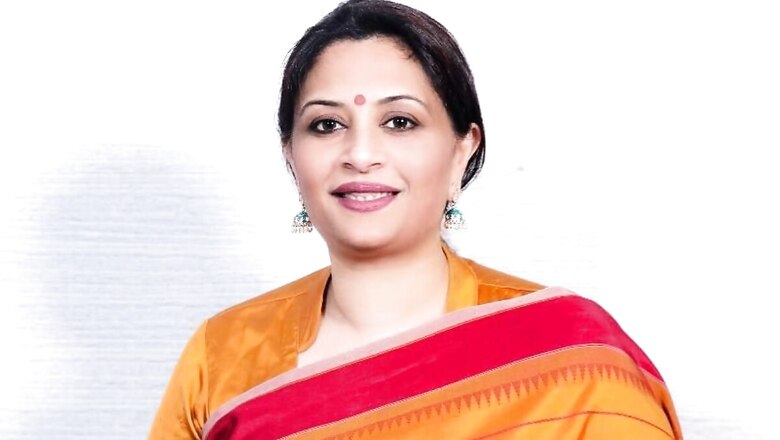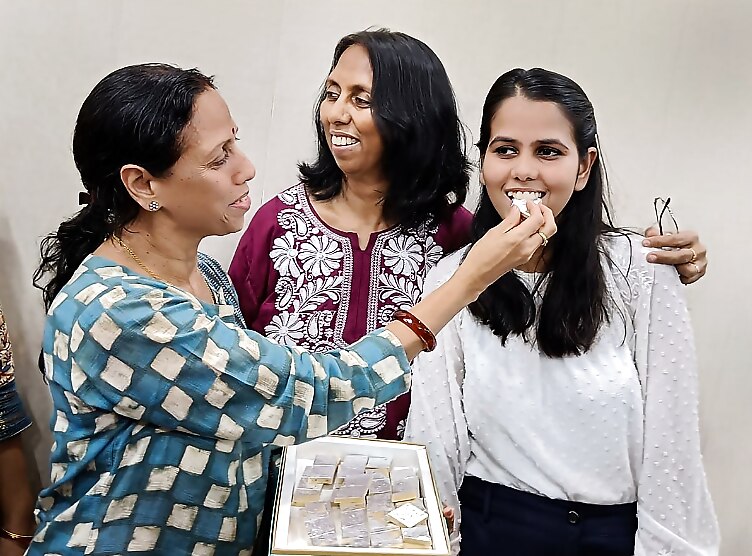
views
Ishita Kishore, an economics graduate from Shri Ram College of Commerce at Delhi University, made headlines on Tuesday as she bagged the top rank in the prestigious Civil Services Exam (CSE) conducted by the Union Public Service Commission (UPSC).
Kishore achieved the feat in her third attempt with political science as her optional subject in CSE Mains. Shishir Tripathi spoke to Shubhra Ranjan, whose classes Kishore attended to prepare for the exam, to understand what differentiates a topper from the rest and how the profile of those aspiring for civil services has changed over the years.
Edited excerpts:
Firstly, congratulations as your student Ishita Kishore has topped the prestigious Civil Service Exams. She is the second student from your classroom after Tina Dabi to have topped the exam. How do you feel?
I feel elated to be a part of their success story. I think history repeats itself but that demands consistency and concerted guidance. Having said that, I would also like to emphasise that it comes from the willpower of students.
Kishore was an economics graduate but took political science as optional. According to you, what is the reason behind so many students from different backgrounds opting for political science?
This can be answered at two levels. First, at the intrinsic level, the nature of political science as a subject is all-encompassing and organically linked with the general studies syllabus. Second, at the structural level, is the kind of guidance and support system available to political science as an optional. We at Shubhra Ranjan have ensured that we provide quality education. Apart from classroom guidance, our test series and crash course also act as a north star.

The first four toppers this year are women. What do you have to say about this?
It shows that jab padhengi betiyan, tab badhengi betiyan… and see how. It gives me immense satisfaction that the present government is also taking cognizance of and providing an impetus to women. I hope this excellent result will bring forth more ‘Nari Shakti’ in the future.
Many of your students have secured very good ranks in the exam. After Tina Dabi, who topped CSE in 2016, your student topped this year again. Do you see something special in the toppers?
For me, each and every student of mine is the same. Despite my engagements, whenever I get to interact with my students, the one thing that comes to my mind regarding toppers is their never-say-die attitude. They understand that Rome was not built in a day.
If you have to list three things/qualities to clear the UPSC exam, what would those be?
Three qualities: perseverance, being a dreamer, and hard work.
Why does it happen that sometimes extremely well-read and intelligent candidates are unable to clear the exam when they are seen as potential toppers? What is the cause of failures?
This is so because intelligence is not the only determinant of success in this exam. I always say, more than knowing everything, it is pertinent to know what not to study for the exam. It is in these matters that coaching comes handy. They rationalise your work and guide intelligence in the right direction.
In what way has the profile of those clearing the exams changed over the years?
In terms of gender, there is a big change as women are ruling the roost. There is also change in terms of language with Hindi-medium candidates getting their due.
Other changes are that even working professionals are doing well now. Graduation matters as well. This time, about nine rankers in the top 20 are from the University of Delhi. I think that the recently introduced CUET will also act as a catalyst in the coming years.
Do you think that changes introduced after 2012 really made things more difficult for students from regional backgrounds?
I do not hold such a view. In fact, in terms of the nature of questions, UPSC has ensured that questions are not based on rote learning. And concepts have no regions. But yes, the English and Maths portion in CSAT is becoming tough. I also feel that regional areas may be lacking proper guidance. And it is high time to democratise education.
There are numerous suggestions for removing optional subjects from the exam. Do you feel that such a move will bring about parity?
Removing optional or continuing it depends on what UPSC wants. It will depend on the skills they want to see. But it will not be a good decision from the perspective of the study of humanities in India. Of course, UPSC must maintain its uniqueness and should not move in direction of state civil services. As the world is more challenging, we need people with sharper skills across disciplines.














Comments
0 comment